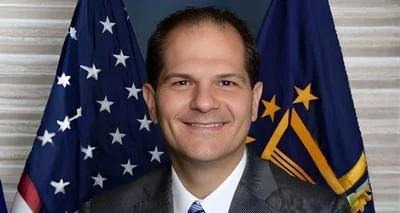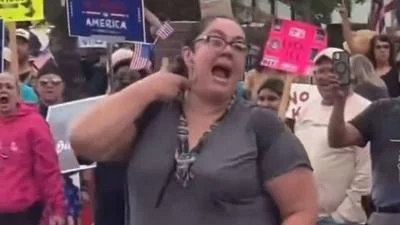Brandon Johnson Mayor | Chicago Contrarian
Brandon Johnson Mayor | Chicago Contrarian
Chicago officials are facing scrutiny over the rising costs of affordable housing developments in the city. A recent analysis has highlighted that projects intended to provide lower-cost homes have ended up being more expensive per unit than many market-rate properties.
Earlier this year, Mayor Brandon Johnson and several local officials attended the ribbon-cutting ceremony for Encuentro Square, an affordable housing development on the border of Logan Square, Hermosa, and Humboldt Park. The event also included Alderman Jessie Fuentes, Representative Delia Ramirez (IL-3), and then-Cook County commissioner Anthony Quezada. The project drew attention when it was reported that its total cost reached $67.5 million—amounting to more than $750,000 per apartment.
Block Club Chicago reported:
“Encuentro Square cost $67.5 million to build — more than $750,000 per apartment — an exorbitant cost that hampers the ability to build more needed affordable housing, developers and experts said.
‘There’s this perception that when an affordable housing development is really expensive, somebody’s getting away with something,’ said Lincoln Stannard, co-executive director for LUCHA, the affordable development company behind Encuentro with Evergreen Real Estate Group. ‘The reality is, high costs for projects create challenges for anyone and keep us from doing what we want to do. When projects are high cost, they are more complex, take a lot longer and they limit our mission to create as much affordability as possible.’”
In comparison, most condominiums in the same 60647 ZIP code can be purchased at prices below $750,000 without any taxpayer subsidies. Reports suggest that while inflation has raised construction expenses across all sectors since COVID-19 began, costs associated with building affordable units in Chicago have outpaced those of luxury high-rises.
Additional factors driving up prices include legal fees, consultant charges related to tax credits, design costs tied to higher building standards, and environmental requirements. Block Club noted:
"Lesser-known development costs — legal fees, tax credit consultants, design and lawyer fees and environmental costs for high building standards — add to the unit price."
Regulatory burdens also play a role in these expenses. Developers seeking municipal funding must complete detailed documentation such as the Chicago Economic Development Statement (EDS), which requires companies involved in projects to disclose past profits linked to slavery—a process described as both time-consuming and costly.
A Crain’s Chicago Business study cited by Block Club found another West Side project where each unit cost around $850,000; about half of those expenses were attributed directly to regulatory compliance.
Beyond subsidized developments, rents across Chicago have continued rising faster than other major cities. Axios Chicago recently reported average monthly rent now stands at $2,113—more than $100 higher than last year.
City leaders have introduced initiatives like “Cut the Tape” aimed at streamlining regulations on new construction but observers argue these efforts remain insufficient compared with reforms adopted elsewhere. For instance, Detroit has advanced policies allowing smaller setbacks for new homes near property lines and permitting accessory dwelling units (ADUs) in most neighborhoods.
Some commentators argue that easing zoning restrictions and reducing red tape could help address supply shortages affecting both buyers and renters throughout Chicago.
Calls continue for policymakers—including potential future mayors—to reconsider current approaches toward urban housing policy by removing regulatory obstacles in order to boost residential construction across open land within city limits.






 Alerts Sign-up
Alerts Sign-up